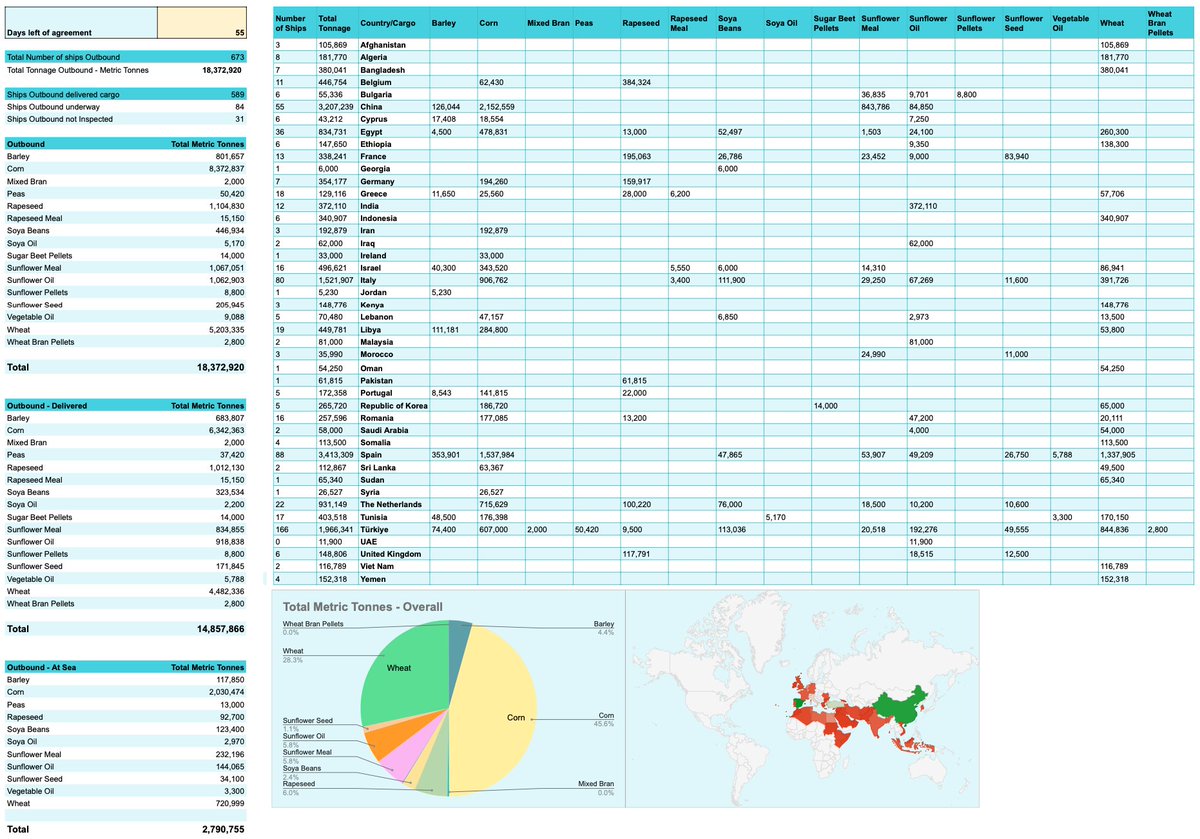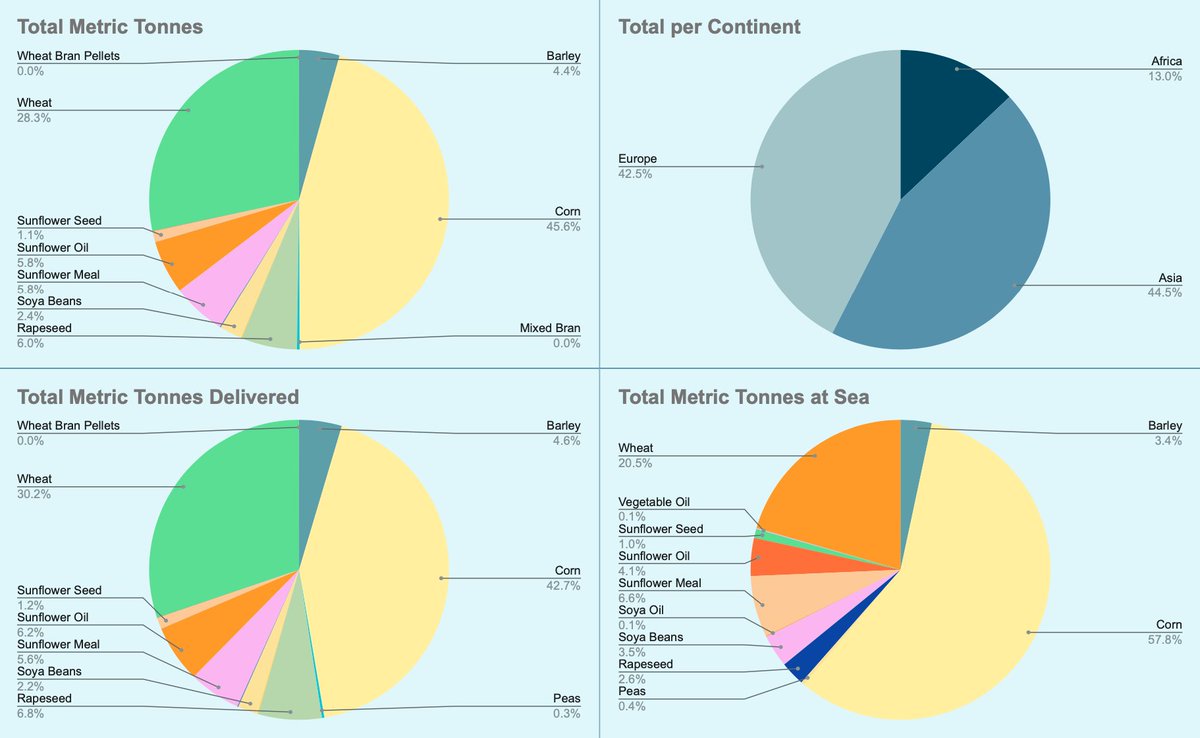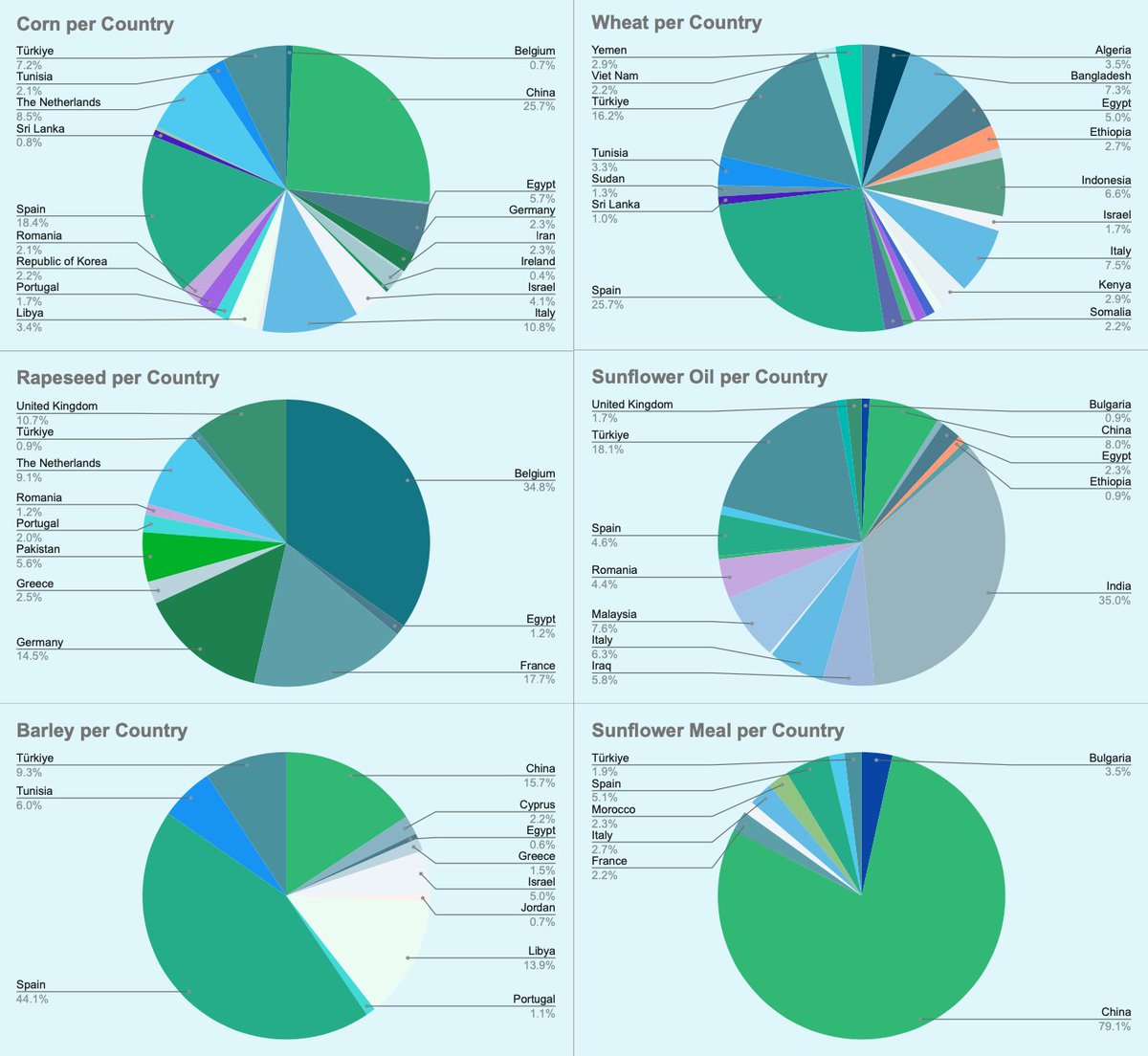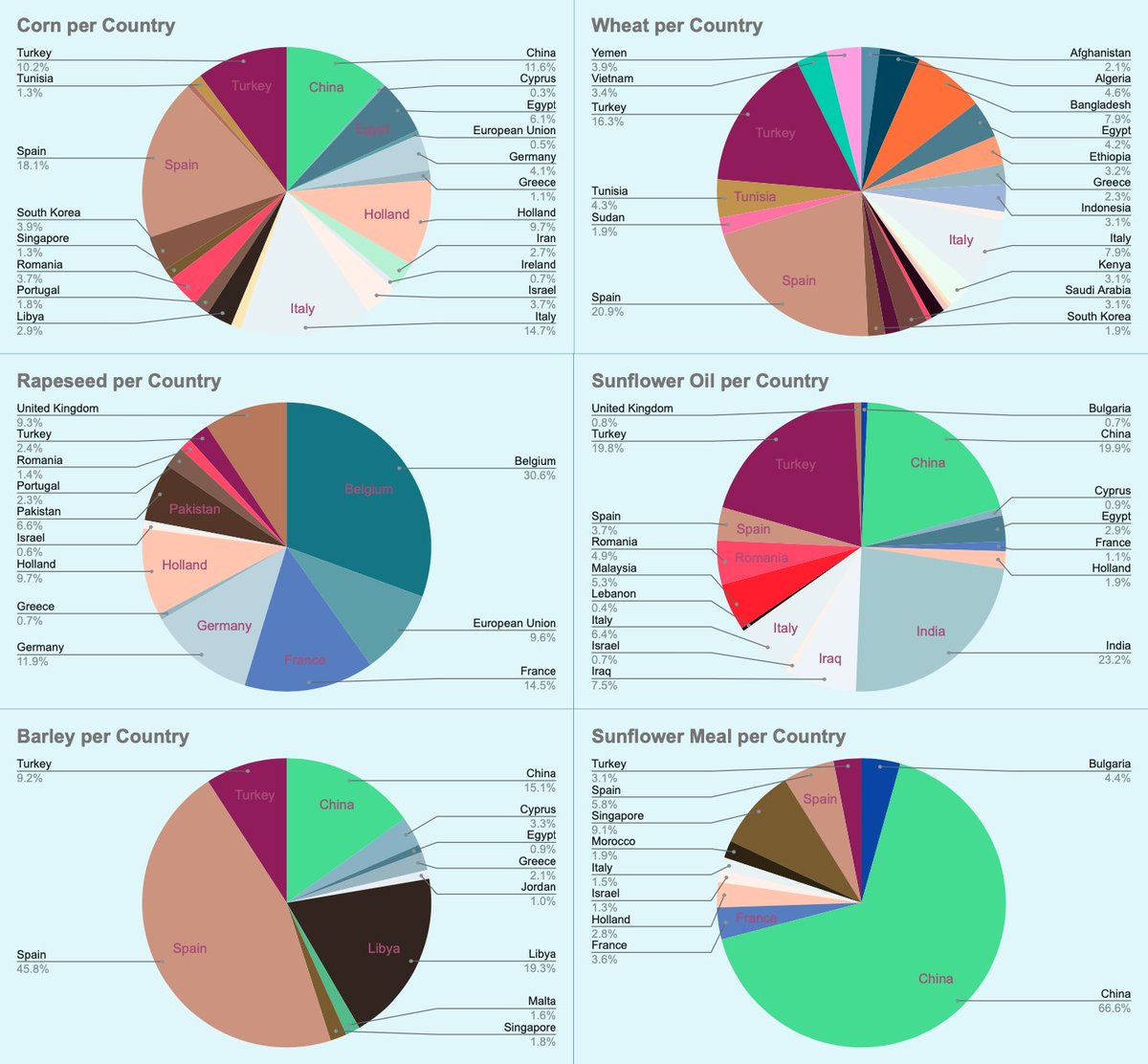
The Run Down
This Russian invasion of Ukraine is really a war for global food security.
This article is a good overview of the ever constant consequences of Putin’s invasion.
web.archive.org/web/2023010211…
This Russian invasion of Ukraine is really a war for global food security.
This article is a good overview of the ever constant consequences of Putin’s invasion.
web.archive.org/web/2023010211…
Specifically this quote from @SaraMenker points to the global impact of the invasion and how it affects you wherever you are, whether the US or Sudan. 

In fact, a quick search of Google Scholar presents no less than ten articles published since the beginning of the invasion about the impacts on global food security. scholar.google.ca/scholar?as_ylo…
This study quantifies the economic value of wheat imports to countries that are not able to domestically meet demand. “Importantly, on average, a country in group 1 imported 299.4 thousand tons of wheat from Russia and Ukraine ... worth US$ 74 million.”
sciencedirect.com/science/articl…
sciencedirect.com/science/articl…
Also from that study, “wheat supplied 14% of a person's daily dietary energy and 16% of their daily total protein intake in the countries with a severe to extremely alarming hunger situation.”
Zelenskyy spoke to a gathering of Agriculture ministers on 21Jan about the importance of global food security.
https://twitter.com/ZelenskyyUa/status/1616827568258260992?s=20&t=D5TSvUZMkqlpSHC511tsvg
All this to say, it matters how much #GrainFromUkraine is exported each month. The charts below show that September and October were strong months but since then the numbers have dwindled. 


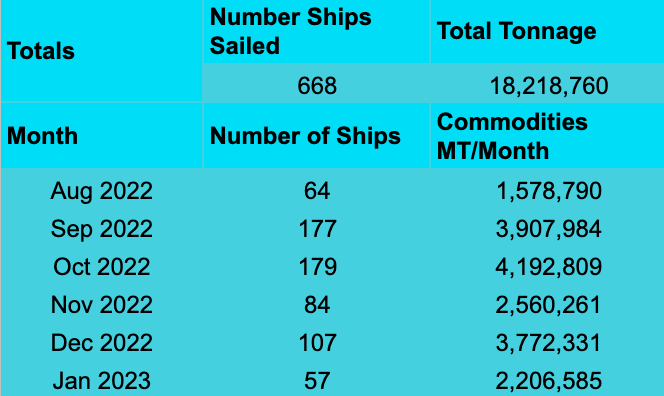
These numbers are directly tied to the number of inspections completed each day. This is a small snapshot I had readily available but you can see that January’s average is much lower. 

Every day that a ship wastes while waiting for an inspection costs money ($20,000 according to this article), that cost is passed on to the consumer which again exacerbates the global food security issue.
mediacenter.org.ua/vessels-with-g…
mediacenter.org.ua/vessels-with-g…
As I have said, it’s winter, there are more storms that affect operations BUT, on November 1st when Russia had temporarily pulled-out of the BSGI and only the UN and Turkish teams were conducting inspections, they did 37 outbound inspections in one day.
https://twitter.com/tizwiz45/status/1617101185449697280?s=20&t=D5TSvUZMkqlpSHC511tsvg
• • •
Missing some Tweet in this thread? You can try to
force a refresh











